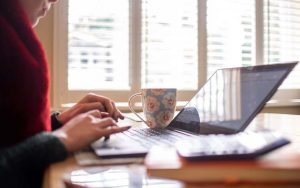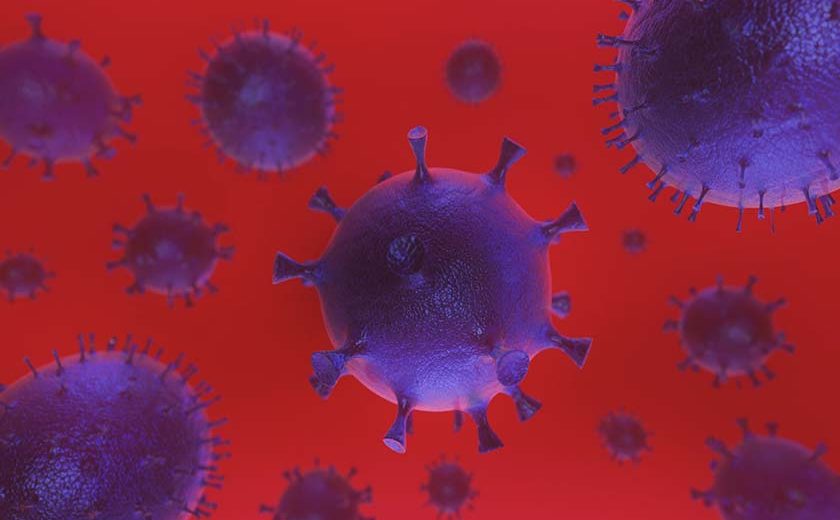We are currently experiencing one of the worst health threatening situations imaginable, that is, the easily contractible Covid-19 virus attack.
How can companies help their employers during this trying time? Natural Health talked to Mr Suresh Pragasam, Regional General Manager, SEA Mundipharma Pharmaceuticals, as well as Dr Murtaza Qasuri, SES Medical Head & Medical Director Singapore & Malaysia, Mundipharma Pharmaceuticals. Here’s what we have learned.
Q: What can companies do to protect their employees from COVID-19?
Mr Suresh:
We should utilise and implement technology to enable employees to work from home, which would help decrease the chances of employees being exposed to viruses from crowded areas such as the public commute. Even at Mundipharma, we have always practiced a work-from-home policy (as and when needed), utilizing technology to allow for virtual work.
Before an outbreak happens, companies should change their employees’ work behaviour and culture by introducing technology in the workplace and training the employee to start using technology. In my opinion, there is a slight challenge as certain people would still love to go to their office as it is part of their routine, as they might prefer a face to face interaction.
While it may be challenging for some to adjust to this new work environment, citizens should cooperate and follow guidelines to combat the COVID-19 outbreak, especially since the virus appears to be highly contagious. Social distancing is a must.
Q: What should companies do in case one of their employees is infected with COVID-19?
Mr Suresh:
If an employee is confirmed or suspected to have COVID-19, office disinfection measures should be conducted, and contact tracing should be conducted to ensure that other employees who may have been closely in contact with the infected employee are monitored and tested. Companies should cooperate with government health authorities to establish a protocol on this, if not already in place.
If one employee is infected with COVID-19, companies should implement work from home schemes while it implements office disinfection measures, and use technology such as video conference calls for meetings and discussions. Once office disinfection has been cleared, companies should establish protocol for visitors and employees coming in and out of the office such as having the receptionist check the temperature of office entrants as a precautionary measure, and placing hand sanitisers at all the entrances.
In support of social distancing, video conference calls should be encouraged for internal and external meetings and discussions. With the checking of temperature of visitors, internal employees, and external vendors, companies may refuse entry to its office to those who have temperatures of 37.5°C and above, showing symptoms (fever, cough or difficulty in breathing), or those who have had direct contact with any suspected or confirmed COVID-19 cases in the last 14 days.
Q: What continuing measures can companies take to ensure their employees’ health, once the COVID-19 outbreak is over?
Mr Suresh:
There are many measures a company can take to ensure their employees’ health once this overbreak is over if health measures weren’t taken into consideration before
During the outbreak:
Betadine Kit
- During this time, we have provided our employees a betadine kit, consisting of personal hygiene products like our Betadine Gargle & Mouthwash, Betadine Sore Throat Spray, Betadine Cold Defence Nasal Spray, Betadine Kids Cold Defence Nasal Spray
- Our products have not been tested against COVID-19, and are provided for personal hygiene during this time.
Basic Health Care Products
- We’ve provided hand sanitiser and facial masks to all our employees (total 65 employees)
Before and After outbreak
- In addition to that, these are a few health measures that companies can implement, which Mundipharma has implemented even before the outbreak.
Health Talks
- We have invited speakers and experts of Health gadgets such as Fitbit to educate our employees on the importance of taking care of their physical health
- In addition to that, we gave each and every one of our employees a Fitbit watch to encourage them.
Health Insurance
- We participated in Malaysia’s healthiest workplace by a leading healthcare insurance brand and we received good rating comparing to company benchmark: low number of smokers; low absenteeism; good mental wellbeing such as low work-related stress; financial concerns and depressive symptoms;
Annual Phama Games
- It is very good to participate in annual games event if one is available in your industry
- For instance, Mundipharma participates in various sports such as badminton, bowling, and snooker in the Annual Pharma Games, organised by the Pharmaceutical Association Malaysia (PhAMA)
- Employee Wellbeing Programme
- Companies can go the extra mile, by providing simple incentive like creating an employee wellbeing programme
- At Mundipharma, we subsidise the GYM memberships and nutrition supplements for all employees
Staff Purchase
- In addition, to encourage good personal hygiene, we provide each of our employees with monthly product vouchers to spend on Betadine products.
Q: What does this pandemic spell for the corporate world? What are your thoughts on how this will impact how businesses are run in the future?
Mr Suresh:
- Businesses across the world will definitely be impacted especially for those companies who are not prepared for any form of pandemic
- Pandemic preparedness is very important for organisations as well as individuals
- We have to inculcate pandemic preparedness as part of our culture, to come up with the best ways and methods for a company to reach its optimum level of output during an outbreak.
Mundipharma with Ministry of Health (MoH) – Hand wash hygiene
- Talking about pandemic preparedness, part of it is to start at the very basic facts like “how to wash your hands the right way”
- Mundipharma has partnered with MoH to organise educational activities by having experts train the teachers and providing material and resources to the school to educate their students on the importance of washing their hands the right way as it is part of basic personal hygiene
Mundipharma Hand Washing App
- Mundipharma supported a study by University Sains Islam Malaysia by developing an app with sensor application to educate people on how to wash hands the right way
- The result of the study showed that the school who implemented this app to educate their students resulted in a significant lower rate of school absenteeism
- The handwashing education video can be seen on our BETADINE website under the BETA PROTECT section (http://my.betadine.com/), and the interactive application can be downloaded from the Google Play Store or Apple App Store.

Q: Will this mean more companies will adopt a “work from home” concept for longer periods of time?
Mr Suresh:
- Yes, especially during this outbreak we believe companies will start introducing or implementing the “work from home” policy.
- We, at Mundipharma, have always had a work from home policy where employees can enjoy this facility as and when needed. We believe in a work integration and with technology work can be done virtually.
- Companies should optimise the use of technology to keep everyone digitally connected to maintain the productivity level.
- For Mundipharma we do not track the work completed by our employees from home, because we have a mutual trust level and we take into account the output and quality of their work when they have to work from home.
Technology used by employees at home
- We provide virtual platforms for customer interactions as we need to interact externally with customers and internally with our doctors
- We have digital promotional materials where the sales team can interact with doctors digitally
- The doctors we engage would be able to participate in medical conferences via conference call and webinars.
Q: For the pharmaceutical industry, will the surge in demand for face masks, hand sanitisers and consumer health products have a big impact on pharmaceutical players’ bottom lines? Can you share your views on this?
Mr Suresh:
The demand for hand sanitizers will go up, as people become more educated and aware of the importance of personal hygiene . As for the face masks, they should be used by people who are infected or sick, to prevent infecting others
Q: Could you briefly explain to us more about the Coronavirus disease (COVID-19) outbreak?
Dr Murtaza:
Coronaviruses are a large family of viruses found in both animals and humans. Some infect people and are known to cause illness ranging from the common cold to more severe diseases such as Middle East Respiratory Syndrome (MERS) and Severe Acute Respiratory Syndrome (SARS).
A novel coronavirus COVID-19 is a new strain of coronavirus that has not been previously identified in humans. The outbreak of this new, or “novel” coronavirus, now called COVID-19was first reported from Wuhan, China, on 31 December 2019
Q: What are some of the common symptoms of COVID-19 that people should be aware of?
Dr Murtaza:
The symptoms are similar to other respiratory illnesses. Infection with COVID-19 can cause mild symptoms including a runny nose, sore throat, cough, and fever. It can be more severe for some individuals and can lead to pneumonia or breathing difficulties.
More rarely, the disease can be fatal. Older people, and people with pre-existing medical conditions (such as, diabetes and heart disease) appear to be more vulnerable to becoming severely ill with the virus.
Q: Can humans become infected with the COVID-19 from an animal source? If yes, what must the public do to avoid being infected by animals?
Dr Murtaza:
In the case of the SARS-CoV, detailed investigations found that SARS-CoV was transmitted from civet cats to humans in China in 2002, where else the MERS-CoV was transmitted from dromedary camels to humans in Saudi Arabia in 2012.
As for COVID-19, the animal source of the COVID-19 has not yet been identified. This does not mean you can catch COVID-19 from any animal or from your pet. It’s likely that an animal source from a live animal market in China was responsible for some of the first reported human infections.
According to the World Organisation for Animal Health, the predominant route of transmission of COVID-19 appears to be from human to human although current evidence suggests that the COVID-19 virus has an animal source. Ongoing investigations are important for identifying the animal source (including species involved) and establishing the potential role of an animal reservoir in this disease.
Yet, to date, there is not enough scientific evidence to identify that source or to explain the route of transmission from an animal source to humans. Genetic sequence data reveals that the COVID-19 virus is a close relative of other CoV found circulating in Rhinolophus bat (Horseshoe Batpopulations.
Q: Can COVID-19 be transmitted from person to person?
Dr Murtaza:
Yes, the COVID-19 causes respiratory disease and can be transmitted from person to person, usually after close contact with an infected patient, for example, in a household workplace, or health care center. In a study published on February 12, 2020, The 2019-novel-coronavirus (2019-nCoV) was detected in the self-collected saliva of 91.7% (11/12) of patients.
Q: What can we do to protect ourselves from this virus?
Dr Murtaza:
WHO’s COVID-19 related advice for public recommends the following protective measures:
- Wash your hands frequently with soap and hand sanitiser to eliminate virus on your hands
Avoid touching eyes, nose, and mouth
- Our hands might touch many surfaces which can be contaminated with virus
- If we touch your eyes, nose, or mouth with your contaminated hands, we can transfer the virus from the surface to ourselves
Practice respiratory hygiene
- We all should practices good respiratory hygiene from infecting others and getting infected ourselves
- We should cover our mouth and nose when coughing and sneezing to prevent the spread of germs and viruses, and immediately wash our hands
Maintaining social distancing
- I would suggest everyone to avoid crowded places if possible
- We should at least maintain 3 feet distance from other people, particularly those we are coughing, sneezing and have a fever
- This is because those who is infected by COVID-19, coughs and sneezes, they project small droplets containing the virus, and we might be infected if breathe in the virus when we are too close to them
Q: Even in Malaysia it is so difficult to get a face mask as it is always sold out. In your opinion, is wearing a face mask that important?
Dr Murtaza:
Wearing a medical mask can help limit the spread of some respiratory disease. However, using a mask alone is not guaranteed to stop infections and should be combined with other prevention measures including hand and respiratory hygiene. In my opinion, the face mask is also good to prevent us from touching our mouth and nose regularly, as our hands might be exposed to touching surfaces with bacteria. WHO advises on rational use of medical masks thus avoiding unnecessary wastage of precious resources and potential misuse of masks. This means using masks only if you have respiratory symptoms (coughing or sneezing), have suspected COVID-19 infection with mild symptoms or are caring for someone with suspected COVID-19 infection.
Q: Who is at a higher risk to be severely ill during this COVID-19 outbreak and why?
Dr Murtaza:
Everyone should stay away from crowded places if possible, to decrease the risk of being exposed on COVID-19. However older people and people with pre-existing medical conditions such as diabetes and heart disease, should take extra precautions to protect themselves. This is because Type 2 diabetes causes white blood cells to function less effectively, there by impairing the immune system to combat any infections.
If the human lungs aren’t able to expand adequately due to pre-existing conditions like lung fibrosis or COPD, then that makes it harder to get oxygen into them. If lungs are filled with fluid due to infection, then they have to work much harder for oxygen to be absorbed. The reduction of oxygen intake by the lungs affects the oxygen delivery to the heart which can dysfunction and complicate into severe illness with a high chance of mortality.
Q: One of the most common questions that people have is what’s the difference between having a common flu or cold and having COVID-19?
Dr Murtaza:
People with COVID-19 typically develop respiratory symptoms such as fever, cough and runny nose
The symptoms are similar to a common flu or cold, even though it is caused by a different infection.
It would be difficult to identify the disease based on symptoms alone, that is why I advise people who have cough, fever and difficulty breathing to seek medical care early. Patients should be honest with their health care providers by informing them if they have travelled in the 14 days before they developed symptoms, of if they have been in close contact with someone who has been sick with respiratory symptoms
Q: What are some of the common misconceptions about COVID-19?
Dr Murtaza:
One example is receiving packages from China – People are afraid to receive packages from China because they thought they are at risk of contracting the new coronavirus. Based on WHO, they stated that from their experience with other coronaviruses, these types of viruses would not survive long on objects, such as letters or packages.
Another is the use of Antibiotics – antibiotics do not work against viruses, they only work on bacterial infections. The novel coronavirus is a virus and antibiotics should not be used as means of prevention of treatment.
(MY-COR-1289-V2-0320)
Source:
https://www.who.int/
https://www.oie.int/en/scientific-expertise/specific-information-and-recommendations/questions-and-answers-on-2019novel-coronavirus/
https://academic.oup.com/cid/advance-article/doi/10.1093/cid/ciaa149/5734265
https://www.who.int/emergencies/diseases/novel-coronavirus-2019/advice-for-public
 Q & A with Suresh Pragasam
Q & A with Suresh Pragasam
Regional General Manager, South East Asia Mundipharma Pharmaceuticals
 Q & A with Dr Murtaza Qasuri
Q & A with Dr Murtaza Qasuri
SEA Medical Head, Medical Director for Malaysia and Singapore
Mundipharma Pharmaceuticals


